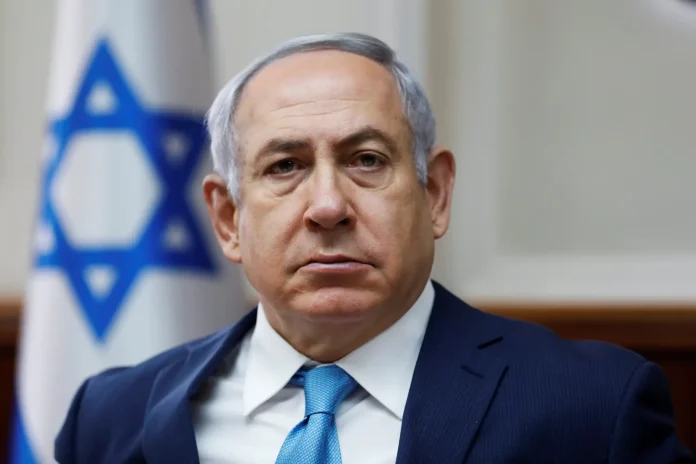A statement has sent ripples through the global diplomatic arena when Israeli Prime Minister Benjamin Netanyahu suggested that the assassination of Iran’s Supreme Leader, Ayatollah Ali Khamenei, could “end the conflict” between the two nations. The controversial statement came during a tense 20-minute interview with ABC News, where Netanyahu reframed Israel’s increasingly aggressive stance as a crusade to protect civilization itself.
Netanyahu: “It’s Not Escalation — It’s Resolution”
When questioned about rumors that former U.S. President Donald Trump previously blocked Israel from targeting Khamenei due to fears of an uncontrollable escalation, Netanyahu shrugged off concerns. “It’s not going to escalate the conflict,” he claimed. “It’s going to end the conflict.”
The Israeli leader went further, drawing a chilling historical parallel: “[Khamenei] is like a modern Hitler. He just will not stop.” Labeling the Iranian supreme leader as the ideological core of Tehran’s anti-Israel policy, Netanyahu made the case that removing Khamenei would dismantle the very foundation of Iranian aggression
Netanyahu’s tone throughout the interview was stark and unforgiving. In his eyes, this isn’t merely a territorial or political dispute — it’s a battle between light and darkness. “The forever war is what Iran wants,” he insisted, warning that inaction could drag the world into a nuclear abyss.
The Israeli premier portrayed Israel’s pre-emptive military campaign as a defense against the most catastrophic war imaginable. “What Israel is doing is preventing this… bringing an end to this aggression,” he emphasized.
Israel’s Multi-Front Offensive
Speaking at a separate press conference, Netanyahu offered a clearer picture of Israel’s ongoing military operation against Iran. “We are changing the face of the Middle East,” he said. “We’ve eliminated key figures in Iran’s military hierarchy—three chiefs of staff, intelligence leaders, and the air force commander.”
Netanyahu listed Israel’s three major goals:
- Dismantling Iran’s nuclear program
- Disabling its ballistic missile production
- Destroying the ‘axis of terrorism’—Iran’s regional proxy network
According to Israeli intelligence, these surgical strikes are meant to weaken the regime internally and sow doubt among the Iranian populace. “They now see that their leadership is not invincible,” he asserted.
The price of this escalating conflict is already heavy. Iranian authorities report at least 224 deaths, including senior military officials, nuclear scientists, and civilians. Meanwhile, 24 Israelis have died in Iranian retaliatory strikes since last Friday.
Still, Netanyahu remains unwavering. “We will do what is necessary to achieve these goals,” he said, noting that Israel is acting “in full coordination with the United States.”
A Dangerous Game with Uncertain Endings
While Netanyahu’s vision may be clear in his mind — a swift, decisive blow to end decades of hostility — the global community watches with bated breath. To assassinate a sitting head of state, even one as polarizing as Khamenei, would mark a dangerous threshold and possibly ignite the very regional war Israel claims it wants to avoid.
With tensions at a boiling point, the world is left asking: Is Netanyahu defusing a bomb, or lighting the fuse?
Read more: Israel on High Alert as Hamas Attack Anniversary Approaches


























